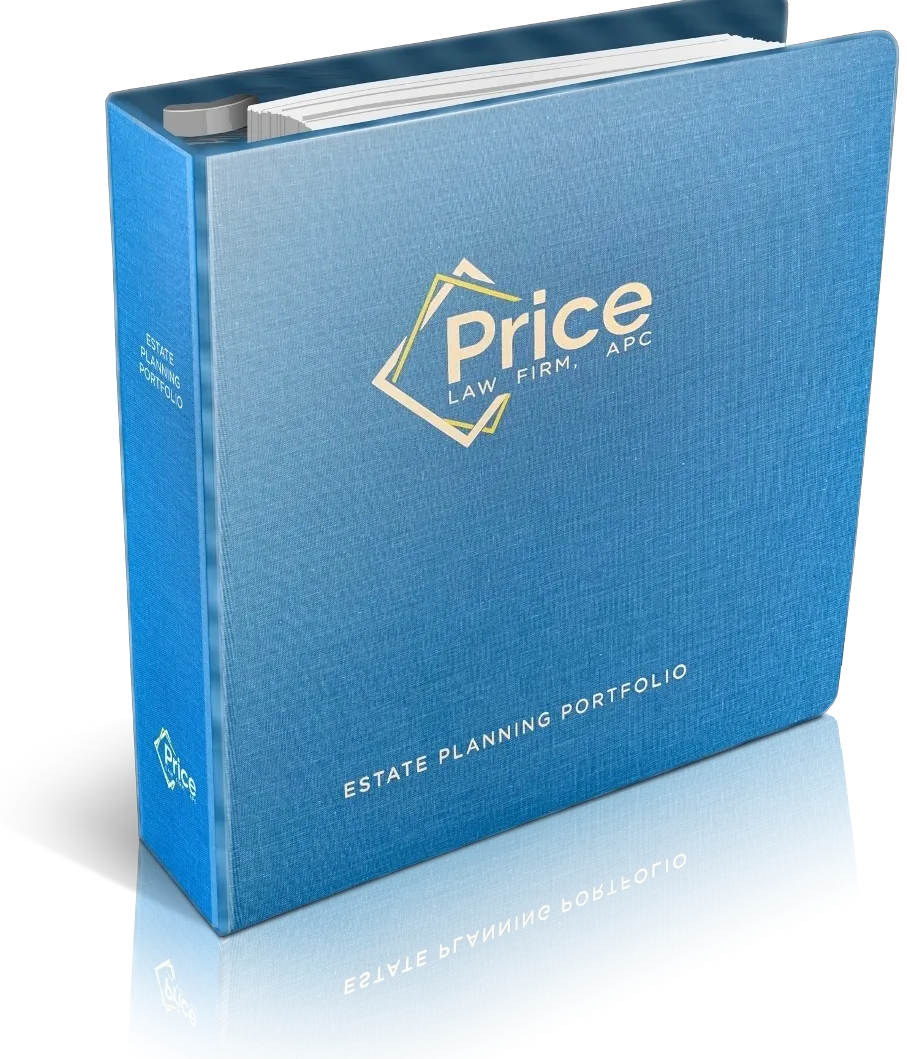
Estate Planning involves the efficient and cost-effective transfer of your assets to your children or heirs. Price Law Firm, APC in Redlands will create a comprehensive estate plan to accomplish your estate planning goals. Since every family’s situation is unique, an estate plan can be tailored to your individual needs. Below are some of the most common documents used in a typical estate plan.
Wills
A Will is a legal document that gives away your inheritance when you die and names your executor, the person who will handle your assets after your death. A will plays an important role in an estate plan as a backstop to catch any property that is not properly held by the trust. A will in an estate plan is a failsafe to ensure that all of your property gets transferred according to the terms of your trust.
Revocable Living Trusts
A Trust is a legal document that gives away your inheritance when you die, names a successor trustee to handle your assets, and it puts someone in charge of your assets if you become incapacitated and can’t make your own financial decisions. Unlike a Will, a Trust will avoid probate and a conservatorship. You will still be able to use and enjoy your property while it is held in the living trust. You can also give your inheritance to whoever you want, when you want, how you want, and to keep the wrong people out. A trust gives you many more options for controlling your assets.
Trust Transfer Deed
If you own your home or other real estate, it is important to transfer all real estate to your trust. This is accomplished by recording a trust transfer deed, transferring the property from you as an individual, to you as trustee of the trust. Recording a trust transfer deed does not interfere with your use of the property, the mortgage, or your ability to sell the property. Also, your property taxes will not increase from a reassessment of the property value as a result of this transfer.
Pour-Over Will
This special type of Will allows you to avoid probate on personal property and financial accounts with a value of up to $184,500. This type of Will is needed for personal property and financial accounts that are not appropriate for your living trust or that you otherwise failed to include in your living trust. A pour-over Will puts personal property with a value of up to $184,500 into your trust to be distributed according to the provisions in your trust.
Advance Health Care Directive
This document designates an agent to make medical and healthcare decisions for you in the event that you become incapacitated and can’t make decisions for yourself. Otherwise, if you are able to communicate your medical and health decisions on your own, then the advance health care directive does not take effect. This document also directs your wishes as to ongoing medical treatment in the event of terminal illness, and whether life support is desired when terminally ill.
HIPAA Waiver
The Health Insurance Portability and Accountability Act (HIPAA) is a Federal law that protects the private information of healthcare patients. HIPPA prohibits doctors, nurses and other health care professionals from disclosing the patient’s protected health information, without prior written authorization. A patient must waive the protections offered by HIPAA with a HIPPA Waiver that allows the specifically designated “personal representative” to know his/her otherwise private health information. We draft a HIPPA Waiver together with an Advance Healthcare Directive to allow doctors, nurses, and other healthcare professionals to disclose protected health information so that the agent can make informed choices about healthcare decisions.
Durable Power of Attorney for Finances
This document will designate an agent to make financial decisions for you, including managing money and paying bills. If at some point you become incapacitated and can no longer take care of yourself, your agent will have the power to make financial decisions on your behalf. The power of attorney takes the place of a costly, court-supervised conservatorship. The durable power of attorney is valid until your death.
Guardian for Minor Children
In the event of your death or incapacitation, you need backup parents for your children under age 18. A Nomination of Guardian is a document that names a guardian for your minor children to live with and manage their finances. You can also state your wishes for your children’s education and care.








